VII: Signs
A teacher I had in my first year of college once lectured me on the ephemeral and unreal nature of road signage. “It’s all shamanism,” he’d said. This notion excited me at the time because it expressed something I’d been unable to articulate– the idea that there was this vast, unspoken web of rules governing our daily behavior.
Certain situations make this more obvious. Social conventions, for example. Most people in our culture understand “small talk”, and despite its apparent meaninglessness, it has its purpose.
“How are you?”
“I’m fine, how are you?”
“Not bad, thanks.”
I work retail. When I’m wearing my work uniform and have this conversation with a total stranger (or vice-versa, when I’m ordering a coffee, or need help from tech support), it mutates from its literal meaning and from what I’ve gathered, approximates the following:
“I’m a human. Are you a human?”
“Also a human.”
“Cool, glad we got that sorted.”
After you acknowledge one another’s presence, you then can go on to ask each other questions that you actually want the answers to. Because, you know, there are Rules. I was home-schooled until high school (yes, I’m one of those) and it took me a while to learn that often, people said things they didn’t mean, or had a meaning vastly different from what was apparent. And if, God forbid, you for some reason broke the convention or were more straightforward than you were supposed to be, it caused anything from momentary confusion and/or annoyance to total conversational chaos and a crumbling of the social order.
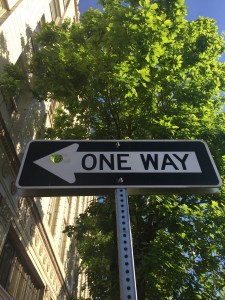
It’s a SIGN! But… what could it mean?
Another example: driving. Driving is the most aggressively meaningful form of shamanism that I’ve witnessed. Literally all that separates your two-ton death machine from colliding head-on with another two-ton death machine is a couple of painted lines on gravel and the mutual acknowledgement that you’re going to obey the lines. Humans are, for the most part, really good at this– go for a midafternoon drive in Chicago or Atlanta and you’ll see what I mean. We are practically born to internalize shapes and colors while moving at 70 MPH and react to them accordingly. The whole system, though, is inherently based on everyone complying with the rules. Everyone has to do the same things, predictably, with a very small margin of error, or people get upset and everything goes totally to shit.
Case in point: the Coast field trip. I was driving a van, following another van, with another van following me. And when the van ahead of me pulled slowly to a stop on the shoulder and then into a small parking lot, parallel with the road, I naturally stopped too. (And so did the van behind me.) There seemed to be enough room for us to idle for a moment and reassess the situation.
The pickup truck behind us three vans, though, didn’t seem to think so. He’d followed us into the lot, presumably assuming that we’d intended to park– and when he couldn’t easily, because three carpool-size vans were blocking most of the small assortment of spots– he flipped. He’d pulled into the last spot and emerged shouting, gesturing, obviously incensed at our appalling behavior.
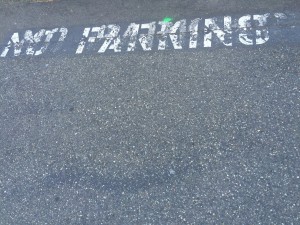
quick way to create irony: spend hundreds of thousands of dollars to create pavement where there previously were living things, and then paint a “no parking” sign there. SHAZAM
Some of the people in my van responded to this: wondering aloud what his problem was, mocking him and pondering about his intelligence level, and becoming irritated that this person would have the gall to be pissed about what we are doing, and not just continue with his day. And all the while he was undoubtedly feeling kind of the same way: what the cock-a-doodle-doo are these vans doing????????? idiots!
This is how road rage is born, kiddos.

Jesus Thugs.
The conversation about climate change happens the same way. Presenting information and having a discussion is governed by a set of rules, which vary based on social and political circles. Even the phrase “climate change” seems to imply “liberal agenda”, to the point where people who don’t identify with that sociopolitical realm hear something totally different. I haven’t played the word-association game with many of them, but when I do I hypothesize I might hear “hippie scum”, “tree hugger”, and probably quite a few vehement asides about how nothing the government/science/etc says can be trusted.
On the flipside, there are quite a few people who wear the mark of liberal pridefully. There isn’t a lot of great discussion happening there either. Utter the words “climate change” and you might find yourself trapped in a circlejerk of poorly-researched notions or led down the rabbit-hole of environmental extremism.
Unsurprisingly, I often find myself at an impasse (which, oddly enough, seems to be what organizations who benefit from the denial of climate change would hope for) because, as mentioned earlier: if you’re following a different set of rules or assumptions, then people will get upset and everything goes to shit.
Like being stuck in traffic, there are a load of ways that a conversation can freeze and stop being productive, stop having meaning– and it’s not just the other guy’s fault. You are never just in traffic. You are always also traffic. We’re all on this planet together. So the problem emerges: how can you learn to drive in a foreign country? How can you navigate the unspoken rules?
It’s all shamanism. And I hear it said that it’s near-impossible to motivate a large group of people to do anything, that the hivemind just can’t handle all agreeing about something– but reasoning like that seems to quietly be ignoring the fact that all of us are mutually agreeing to all kinds of stuff everyday, whether or not we’re thinking about it.
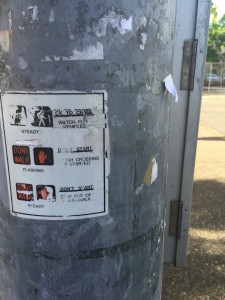
As a chronic jaywalker, I acknowledge the TRUE FACT that my observations of vehicular movement are more important than the light.
Punk rock means being open to information and ideas that challenge your norm. I don’t claim to have the answers. But I do seek them.
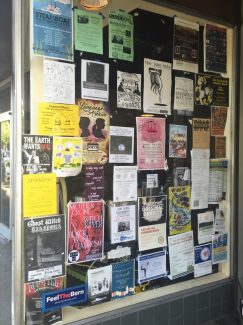
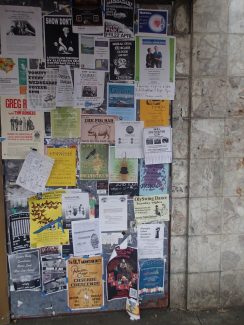

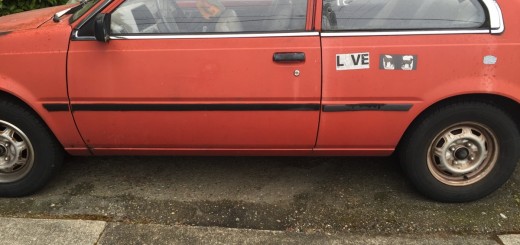
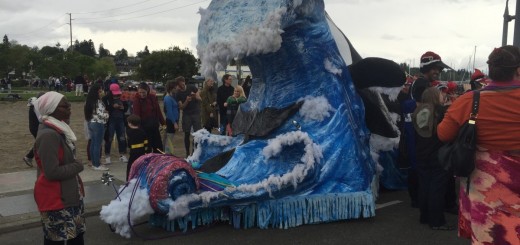
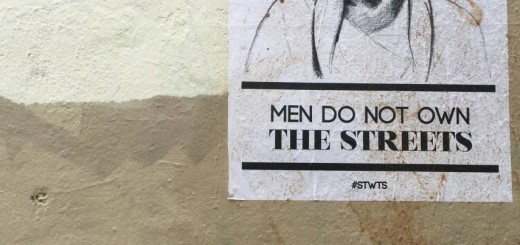

“Cool, glad we got that sorted”. I loved it. I kept reading despite its length. NO PARKING… it all made me laugh and contemplate the irony of wanting free will yet requiring direction for the masses. Thank you for your choice of words and structure. It made it worth reading to the end.